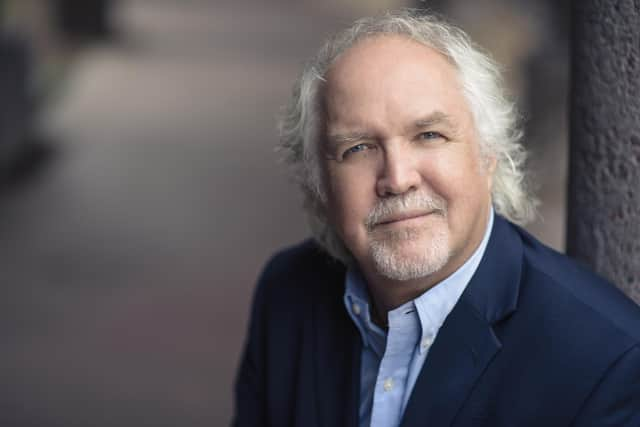Edinburgh International Festival opera and music reviews: Fidelio – Philharmonia Orchestra | Sharon Kam & Enrico Pace | Taraf De Caliu
OPERA
Fidelio – Philharmonia Orchestra *****
Usher Hall, Edinburgh
Beethoven made the final revision to his only opera in 1814, but its core theme of good triumphing over evil, and, in turn, the darkness of imprisonment transitioning into the light of freedom could well be a metaphor for current times as the world emerges from the last two years of pandemic.
The story is of Leonore disguising herself as a man – Fidelio – in order to rescue her husband, Florestan, from prison. In profoundly insightful pacing, conductor Donald Runnicles drew every breath of expression from Beethoven’s extraordinary score. From the edgy tension that ran through the overture and the pain and anguish of Florestan’s hallucinations at the start of Act II, to the pivotal trio with Florestan, Leonore/Fidelio and Rocco as Florestan’s freedom becomes reality and the final, glorious sounds of victory, this was a performance that was both exciting and absolutely compelling.
With powerful, determined singing from soprano Emma Bell replacing Jennifer Davis at the last minute as Leonore/Fidelio, American tenor Clay Hilley as Florestan, Kim-Lillian Strebel as a full voiced Marzelline and the prison guard Rocco benefitting from the sonorous bass of Günther Groissböck, the drama of the piece gained as much as it lost from being a concert rather than fully staged performance. Helped by the semi-costumed cast members singing off-copy, not to mention the robust and youthful forces of Philharmonia Voices, much of the dramatic energy was due to the Philharmonia Orchestra, who play seamlessly, with an immediately engaging warmth of sound and vitality.
In Sir David Pountney’s version of the score, which has a speaker filling in the gaps that would otherwise have been staged, Willard White as narrator set the scene with impeccable timing, as well as taking on the role of Don Fernando, the government minister, with appropriate aplomb and gravitas. Carol Main


MUSIC
Sharon Kam & Enrico Pace ****
Queen’s Hall, Edinburgh
What a shame that such a pitifully sparse audience turned out for clarinettist Sharon Kam and pianist Enrico Pace at the Queen’s Hall. Their thoughtfully planned programme brought a range of contrasting and yet also complementary composers and styles, which along with a world class calibre of performance epitomised what a chamber music recital series can offer.
Opening with Lutoslawski’s Dance Preludes, beloved of all budding clarinettists, Kam and Pace clearly perform in tight-knit partnership, open to exploring and exploiting their repertoire’s inherent expression, whether the seriousness of Berg’s aphoristic Vier Stücke Op 5 or the charm oozing from Joseph Horowitz’s Clarinet Sonatina. Kam plays with a silky smooth sound, as if effortless no matter whether racing up and down the keys in extended scale passages or blowing the softest, stillest notes which still project to the back wall of the auditorium.
As a duo, the pair gel together in timing and capturing the essence of what they play. For the most part, balance between the instruments was similarly well-matched although parts of the F minor Clarinet Sonata Op 120 No 1 called for more from the piano, even though Pace was playing with its lid fully open. Carol Main
MUSIC
Taraf De Caliu ****
Leith Theatre, Edinburgh
The EIF’s happy return to Leith Theatre began in spirited style with Romany ensemble Taraf de Caliu, featuring members of celebrated gypsy veterans Taraf de Haïdouks- namely violinist Gheorghe Anghel, accordion player Marius Manole and Ionica Tanase, the hardest working cimbalom player in showbiz.
Their sprightly instrumental opener was a mere gentle warm-up compared to the scream-if-you-wanna-go-faster paceof what was to come with scurrying strings, declamatory vocals and cheeky accordion runs as much of a recurring feature as the skiffly swing and strut of their basslines. A soulful, mournful violin solo was as expressive as any voice but this more lyrical interlude led into another race to the finish in some crazy time signature.
Following the briefest of breathers, the sextet dived back in with a fleet-footed canter and a characterful conversation between violin and cimbalom.One nimble, not to mention valiant dancing couple in the crowd managed to keep up with the nosebleed speed.
This was street party music delivered with virtuoso dexterity and quasi-classical flourishes, with the group often sounding on the verge of breaking into Danse Macabre or Sabre Dance and, at one point, producingsliding string notes so high they sounded like frantic birdsong. Fiona Shepherd